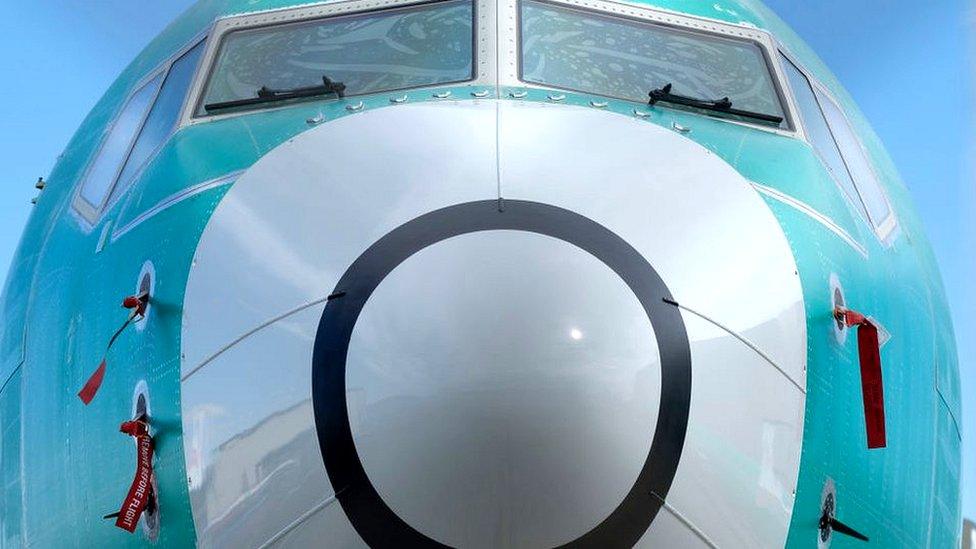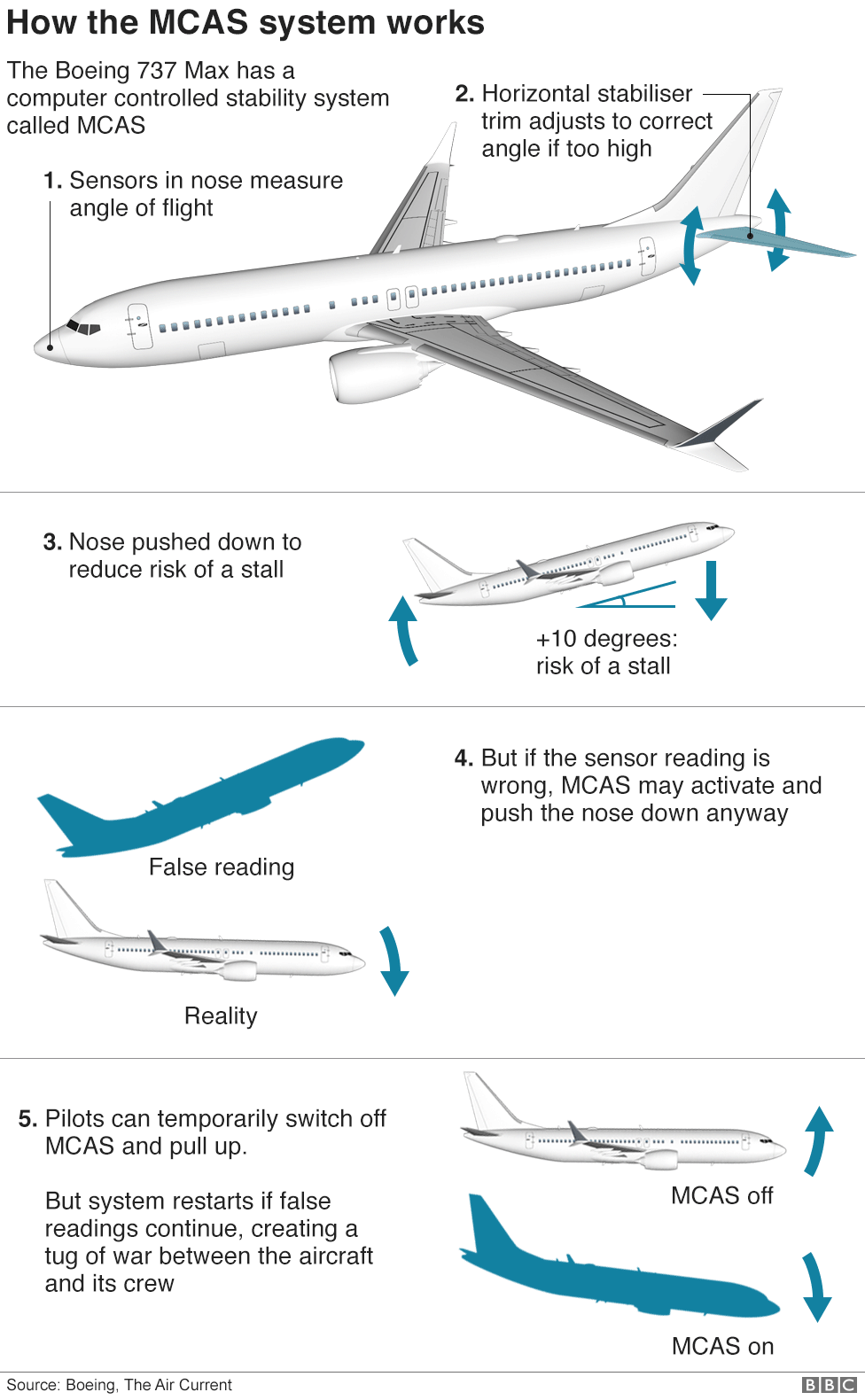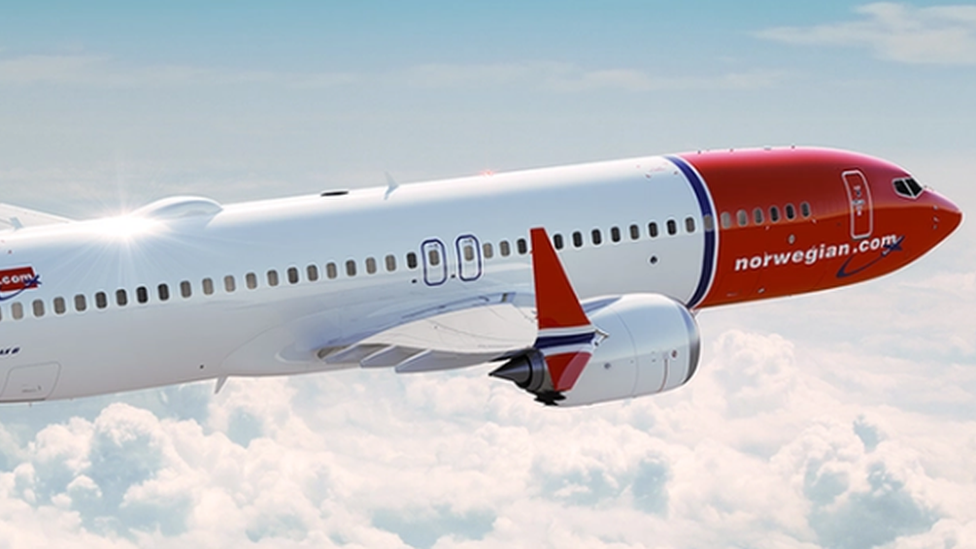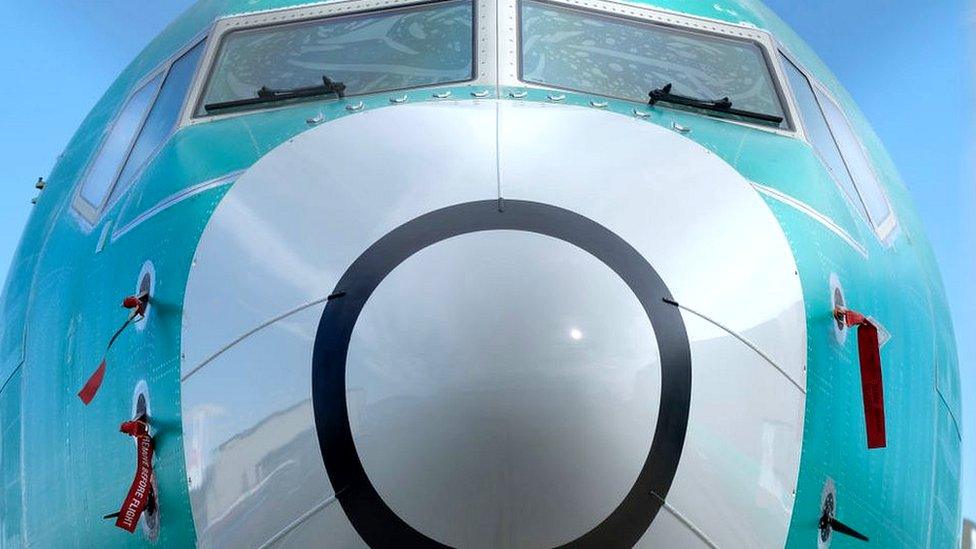Europe will not accept US verdict on 737 Max safety
- Published

Europe's aviation safety watchdog will not accept a US verdict on whether Boeing's troubled 737 Max is safe.
Instead, the European Aviation Safety Agency (Easa) will run its own tests on the plane before approving a return to commercial flights.
The 737 Max has been grounded since March after two fatal crashes.
But Easa told the US Federal Aviation Administration (FAA) there would be "no delegation" on safety approval in a letter sent on 1 April.
Patrick Ky, Easa's chief executive, revealed a list of four conditions given to the US authorities in a presentation to the European Parliament's committee on transport and tourism on Monday.
Europe's tough stance is a blow to Boeing's hopes of a rapid return to service for the 737 Max, and is also a significant break with the established international practice of aviation regulators accepting each other's standards.
A spokesperson for the FAA said it had "a transparent and collaborative relationship with other civil aviation authorities as we continue our review of changes to software on the Boeing 737 Max".
"Our first priority is safety, and we have set no timeframe for when the work will be completed. Each government will make its own decision to return the aircraft to service, based on a thorough safety assessment."
The 737 Max plane has not flown commercially since an Ethiopian Airlines aircraft crashed shortly after take-off on 10 March, killing 157.
It followed a Lion Air crash on 28 October last year which killed 189.
In both incidents, investigators have focused on the role played by a software system called MCAS (Manoeuvring Characteristics Augmentation System), which was designed to make the aircraft easier to fly.
Probes have shown the software - and the failure of sensors - contributed to pilots not being able to control the aircraft.
Mr Ky's presentation showed a refusal to accept delegation was the first of the four conditions that had to be met before flights in Europe could resume.

The other three were:
an "additional and broader independent design review" by Easa
that the two fatal crashes were "deemed sufficiently understood"
and that flight crews had been adequately trained in any changes to the plane.
Easa's work on the 737 Max had entailed "an unprecedented level of effort", with 20 aviation experts and two to three online meetings a week with Boeing engineers.
There were plans for a full week of trial flights with a modified aircraft at Boeing's flight test centre in Seattle.
Boeing has been working on changes to the 737 Max's flight control systems to avoid the MCAS problem. As well as changes to the plane, it has proposed changes to the ways pilots are trained.
Reports in the US have suggested that Boeing had hoped for FAA safety clearance next month, with airlines free to fly the aircraft later in the year.
FAA approval would allow US airlines to fly the aircraft, but European operators - including Norwegian Air - would need Easa clearance before returning it to commercial service.
- Published13 August 2019

- Published17 May 2019
